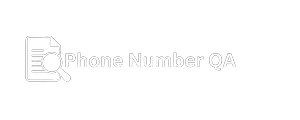As a business owner, it can be concerning and frustrating to discover that your business phone number is being flagged as spam by recipients or blocked by spam filters. This article aims to shed light on the possible reasons behind this issue and offers insights into how you can address it. By understanding why your business phone number might show up as spam You can take proactive steps to maintain a positive reputation and ensure effective communication with your customers.
-
Caller ID Spoofing:
One common reason for your business phone number being marked as spam is caller ID spoofing. Fraudsters can manipulate caller ID information Cayman islands phone number list to make it appear as though calls. Are originating from a different number, including your business phone number. Unfortunately. This can lead to recipients associating your legitimate calls with spam or fraudulent activity.
-
High Volume Calling:
If your business engages in a high volume of outbound calls, especially in a short period, it might trigger spam filters. Phone carriers and spam detection systems often monitor call patterns to identify potential spam or robocalls. Even if your calls are legitimate, the sheer volume might cause your number to be flagged as spam.
-
Previous Spam Reports:
If your business phone number has been previously report as spam. It can result in a negative reputation for your number. Reports from recipients who have received unsolicited or Phone Number QA unwanted calls from. Your number might lead to spam labeling in databases and subsequent blocking by spam filters.
-
Unwanted Robocalls:
If your business utilizes automated dialing systems or prerecorded messages for marketing or customer outreach, it’s crucial to ensure compliance with regulations, such as the Telephone Consumer Protection Act (TCPA). Failure to follow these guidelines can result in recipients reporting your calls as unwanted robocalls, leading to spam labeling.
Addressing the Issue:
- Monitor and Mitigate Caller ID Spoofing: Regularly monitor your business phone number for any signs of caller ID spoofing. If you discover instances of spoofing, report them to your phone service provider and relevant authorities. Consider implementing call authentication protocols, such as Secure Telephony Identity Revisit (STIR) and Secure Handling of Assert information using toKENs (SHAKEN), to enhance caller ID verification.
- Implement Call Volume Management: If your business makes a high volume of calls, spread them out over time to avoid triggering spam filters. Implement systems to manage and track call volumes, ensuring they remain within acceptable limits.
- Maintain a Good Sender Reputation: Engage in best practices for outbound calling, such as obtaining prior consent, providing clear opt-out options, and adhering to TCPA regulations. By maintaining a positive sender reputation, you can reduce the likelihood of your business phone number being label as spam.
- Monitor and Respond to Complaints: Regularly monitor customer feedback, online reviews, and complaints relat to your business phone number. Promptly address any concerns or issues raise by customers to mitigate the risk of further spam reports.
Conclusion:
Discovering that your business phone number is being flagg as spam can impact your reputation and hinder effective communication with customers. By understanding the possible reasons behind this issue and taking proactive steps to address them. You can protect your business’s image and maintain a positive caller experience. Monitor for caller ID spoofing. Manage call volumes, maintain compliance with regulations. And actively address customer feedback to ensure your business phone number is recogniz as legitimate and trustworthy.









